PINOT NOËL WHY OUR WINE COLUMNIST WILL BE GOING LIGHT THIS CHRISTMAS P14

CRISIS, WHAT CRISIS?





BANK OF ENGLAND governor Andrew Bailey poured cold water on ambitious government plans to rewrite the financial services rulebook yesterday, warning that the regulatory issues which led in part to the global financial crisis have not gone away.
The government is set to tweak some 30 pieces of regulation, the so-called Edinburgh reforms, which it believes will free the City to be more competitive on a global basis.
That includes changes to EUera Solvency II regulations, which put limits on long-term investing by pension funds and insurers, as well as changing ring-fencing rules for banks.
Industry groups UKHospitality and the Night Time Industries Association estimated that venues would lose as much as £2bn due to the walkouts.

LARGE parts of London resembled a ghost town yesterday as rail workers kicked off the first of several days of strikes.

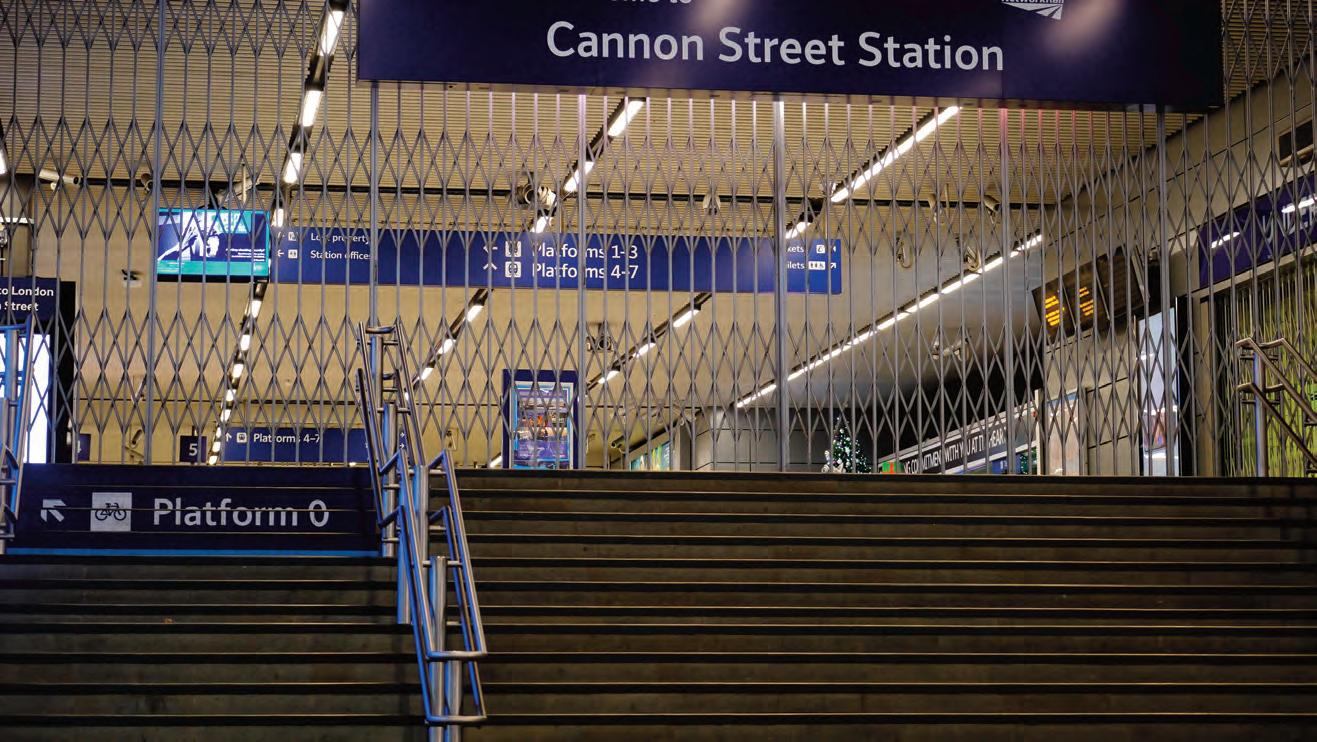
Bars in the capital warned they are haemorrhaging tens of thousands of pounds in lost bookings due to mass walkouts deterring commuters, raising the threat of businesses missing out on revenues from the so-called ‘golden quarter’ for the third year in a row.
Nightlife bosses also warned firms would go bankrupt and thousands of jobs could be lost.
London Bridge bar Amazing Grace shed £50,000 due to cancelled Christmas parties, with Sammie Ellard-King from the venue saying staff’s lost hours were “really upsetting”.
City cabaret club owner Alex Proud said his venue was sold out every night a
month ago but was now down £30,000 in 24 hours. After Covid-19 disruption, Proud said he was “in shock” that the industry was “now being hit again”.



Figures out yesterday from the ONS revealed 400,000 working days were lost to strikes in October, the highest since November 2011.
The disruption is set to ramp up in the coming weeks and union bosses told City A.M. the annual figure could hit the highest this century.
Network Rail staff and 14 other train operators will also down tools on
December 16, 17 and four days in January as part of a long-standing dispute.
Members of the union RMT will also strike over Christmas after they rejected a nine per cent pay rise over two years and no compulsory redundancies until early 2025.
Rishi Sunak yesterday warned his cabinet that winter will be “challenging” in the face of widespread industrial action.
Yesterday RMT boss Mick Lynch railed against the “super-rich”, the “right-wing” BBC and the government in interviews from the picket line.
But yesterday Bailey said he “would… caution that the notion we’re past the financial crisis, and we therefore don’t need the regulations that we had post the financial crisis, I would not go along with that view.”
The governor –who welcomed the review of regulations –appeared to be responding to remarks by City minister Andrew Griffith in an interview with City A.M. last week, when the former Sky exec said the world had “moved on” from the global financial crisis.
“Banks have much more capital today [and] lending practices are much tighter,” he said last week.
SIR RICHARD Branson has ruled out investing new cash in the UK for the foreseeable future, claiming the economy has been hamstrung by trade barriers, economic headwinds and “red tape”.
The Virgin tycoon, who founded
his business empire as a record shop in London in 1970, said the company was looking elsewhere to invest its cash due to the cocktail of economic pressures battering the UK economy.
“As far as new money’s concerned, we would not necessarily invest new
money in Britain at the moment,” he told Tom Swarbrick on LBC. “We’re more likely to invest in America or in some other countries.”
Branson called for a Swissstyle arrangement with the European Union in order to give the UK some

much-needed go forward.
“I think what the government needs to do is to urgently seek a mutually beneficially relationship with the EU – it’s the world’s largest trading bloc – it needs to be at least similar to the deal Switzerland has.”
Such an arrangement would see the UK fall in line with the EU on
food and agricultural standards and would slash the checks on goods between the UK and the bloc.
Suggestions of a Swiss-style deal have recently been rubbished by ministers however, following backlash from hardline Eurosceptics in the Tory party after the idea was mooted by government aides.
IN PRIMARY schools across the world, teachers spend hours pointing out to their students the wonder of the natural world –the way all the pieces fit together to make a whole. Bugeyed kids stare avidly at the inner workings of an ant’s nest; others might be shown a video of the ways bee colonies organise themselves. Even photosynthesis, when you get down to it, is something bordering on the miraculous –an evolutionary
process that has made the world a cleaner, healthier place all the while keeping plants very much alive. The millions of things that make up a natural ecosystem are a thing of wonder, and they exist in the manmade world, too. Cities are not as naturally
beautiful as the morning dawn on the Serengeti, but they are extraordinary ecosystems nonetheless. Like the natural world, all the pieces have to fit together, from a transport network to housing policy. In its complexity it is just as beautiful as anything found on a BBC2 Sunday night documentary –and it is also just as fragile. Yesterday’s rail strike took a hammer to one vital part of our city’s ecosystem: the hospitality
trade. The union bosses behind this most viciously timed walkout say it’s the only way they can get rail companies and the government to listen –but they also admit that the rail companies are compensated whenever they down tools, so it’s an argument that barely holds water. And what these strikes have done is drive a coach and horses through any pub called the Coach and Horses’ plan to get back on its feet after the
pandemic –as it has done to various other businesses. The real victims of this strike are the bar staff who have had their hours cut, the waiters who went home early, the kitchen porters and the cab drivers who are faced with empty streets on what should be the busiest time of the year. They risk grave damage to our city, for no obvious gain –and they’re hurting the lowest paid the most. Some ‘solidarity’ that is from the union.
FROM 2026
The UK government has proposed banning the installation of traditional gas boilers in homes from 2026 and replacing them with “hydrogen ready” heating systems.
LONDON TECH STARTUP SLASHES ITS VALUATION BY $29BN AMID DOWNTURN
Checkout.com, a London startup that investors believed was worth $40bn in January, has seen its value fall by 75 per cent as the ongoing global rout of technology businesses continue.
The US is set to send Patriot missiles to Ukraine, months after Kyiv asked for the defence system to help shoot down long-range Russian missiles. A formal announcement is expected in the coming days.
however only £144m is allocated for the capital over the next three years.
SADIQ KHAN has called on Rishi Sunak to give London more cash from the government’s signature Levelling Up funds to tackle “the capital’s substantial inequalities”.
New figures from City Hall show London has received £76 per person from a series of Levelling Up initiatives worth billions of pounds, which is well below the England average of £384 per person.
London firms are now eligible to apply for up to £30m as a part of the £2.6bn UK Shared Prosperity Fund,
This is less than half of what London would have got under the equivalent EU scheme pre-Brexit.
Khan said London was “the driver of the UK economy” but that the “funding allocated to the capital does not reflect the high levels of unemployment and child poverty”.
“I am determined that London plays its part in helping to level up parts of the country that have been left behind for too long,” he said.
“But if the government really wants to level up, it needs to recognise that

London has some of the most deprived communities in the country and also needs robust support and investment to deliver a more equal society.”
The Levelling Up initiative was first introduced by Boris Johnson during the 2019 election and became a key part of his domestic policy platform.
Sunak has promised to continue the policy, without releasing any more substantial funding, which aims to increase wealth and job opportunities in the north and the midlands.
It has been criticised by London MPs and businesses for ignoring the vast economic disparities in the capital.

US INFLATION fell again last month to its lowest level since the end of 2021 in another sign this year’s price surge in the world’s biggest economy has passed its peak, figures out yesterday revealed.
Consumer prices climbed 7.1 per cent over the last year to November across the pond, down from a rate of 7.7 per cent in October, according to the US Labor Department.
Last month’s drop was faster than Wall Street expected, prompting economists to hail the meat of the
inflation surge as over.
“Stick a fork in it, inflation is done,” Paul Ashworth, chief north America economist at Capital Economics, said.
The bigger-than-forecasted fall raises the chances of the US Federal Reserve today slowing its interest rate hike cycle to 50 basis points.
That climb down from forceful rate hikes is anticipated to mark the start of the world’s biggest central banks taking their foot off the accelerator after a year of rapid rate rises. The Bank of England is likely to lift rates 50 points tomorrow.
WHAT THE OTHER PAPERS SAY THIS MORNING
BIT NIPPY The rest of the UK may have ground to a halt, but freezing temperatures were no problem for morning swimmers yesterday at Chartlon Lido in Greenwich
SOME four million Brits are facing a £3,000 annual rise in their mortgage bills after they refinance next year, the Bank of England warned yesterday.
Higher monthly payments are likely to “lead to greater defaults on mortgages,” the Bank warned, although the scale of failed debt repayments is unlikely to reach the rates seen during the financial crisis.
Higher home loan repayments will intensify a tough cost of living crunch that is on course to erode household real incomes by 7.1 per cent over the next two years, one of the worst drops on record, according to experts.
The Bank said a large chunk of homeowners facing higher bills are younger, lower income groups who lack sufficient financial resources to keep up with repayments.
“Within the mortgager population,

those adversely affected by rate rises are typically younger, have lower incomes, and are the most leveraged,” the Bank warned in its latest financial stability report.
Average mortgage rates have climbed to over five per cent due to a combination of the Bank hiking interest rates eight times in a row to tame a 41-yearhigh inflation rate. Rate-setters are likely to lift borrowing costs again tomorrow to 3.5 per cent.
They were turbocharged by former Prime Minister Liz Truss’s disastrous mini-budget rocking financial markets, sending market debt rates up sharply.
Banks fund lending on international markets, meaning when yields rise, they tend to hike mortgage rates. Markets have since calmed after now Chancellor Jeremy Hunt ditched nearly all of Truss’s mini-budget and then raised taxes and cut spending by £55bn.
THE BANK of England may have been convinced by yesterday’s ONS jobs figures to repeat November’s 75 basis point rate rise tomorrow, analysts said.
Strong private sector wage growth of 6.9 per cent, coupled with Monday’s better-than-expected 0.5 per cent GDP rise, may “increase the chances” of
another jumbo rise, Ruth Gregory, senior UK economist at Capital Economics, said.


Pay growth is still lagging far behind inflation. Real incomes collapsed 2.7 per cent over the three months to October, one of the biggest falls since records began in 2001.
Unemployment nudged up to 3.7 per cent while vacancies clipped down.
TIGHTER oversight of the pensions industry is needed to ensure it can “withstand severe but plausible market moves” similar in size seen in the aftermath of Liz Truss’s disastrous mini-budget in September, the Bank of England said yesterday.
The recommendation by the Bank’s financial policy committee (FPC) was sparked by concerns over the capacity of a small part of the pensions market being able to absorb sharp falls in UK debt prices.


Steep falls in UK bond prices after Liz Truss’s mini-budget forced LDI funds to ditch assets to repay creditors, forcing the Bank to launch an up to £65bn emergency bond buying programme to stamp out a fire-sale.
A spokesperson for The Pensions Regulator told City A.M.: “We welcome the FPC’s recommendations. We will continue to work closely with the Bank of England and other regulators on a longer term plan to ensure trustees who use LDI maintain an appropriate level of resilience.”

THE WORLD’s biggest bullion market is facing a High Court lawsuit over claims it wrongly certified gold from a Tanzanian mine as being responsibly sourced despite it being at the centre of multiple allegations of human rights abuse.
The London Bullion Market Association (LMBA) is being sued for an undisclosed sum by the families of two men who were killed at the North Mara mine after being shot at Barrick Gold’s Tanzanian site in 2019.
The lawsuit claims the bullion market acted negligently and breached its duty of care in wrongfully certifying gold from the Canadian company’s Tanzanian mine as free from human rights abuses under its Responsible Gold Certificate.
The LBMA has continued to certify Barrick’s product as compliant with its human rights standards despite multiple claims from lawyers and NGOs that
the North Mara mine’s security have participated in acts of abuse, torture, and killings. Security at North Mara –known locally as the ‘mine police’ –are alleged to have played a part in killing dozens of locals accused of trespassing and stealing its resources.
Barrick Gold, which is not a party in the dispute, said the North Mara mine is subject to the “constant threat of invasion” from “rogue bands” trying to steal gold-bearing rock.
If successful, the lawsuit could force the LBMA to bar Barrick – the world’s biggest gold mining company – from the market.
The LBMA said it would like to “express its deepest sympathies” to the families of all those injured or killed in Tanzania, but said the “claim has no merit”.
Barrick CEO Mark Bristow said the firm was proud of its human rights record, adding that the North Mara mine maintains a “strong working relationship” with local people.
THE GLOBAL head of KPMG yesterday slapped down suggestions it might follow EY in pursuing a global split, claiming the firm’s performance “validates an unwavering commitment to... a multidisciplinary approach”. KPMG’s global full-year revenues grew 14 per cent to $35bn (£28bn) on the back a 19 per cent uptick in
SHARES dipped for British American Tobacco (BAT) yesterday after the US Supreme Court blocked an emergency request to put the ban of flavoured tobacco on hold.
The court cleared the way for the state of California to push ahead with a voter-approved ban, rejecting a plea from BAT’s Reynolds unit.
The arm, which is owned by London-listed Rothmans maker BAT, warned in court papers that a block would cause “substantial financial losses”.
Restrictions would include vaping products, a category which has grown in popularity, especially among young people.

An estimated 2.55m teens reported using e-cigarettes according to US


federal health officials.
The news that the block may be moving ahead yesterday dragged down the firm’s share price on the London market by nearly one per cent, and marks a major blow for the firm’s “new category” products.
The 120-year old company has said it wants new categories to make up a fifth of its revenue and profitability by 2025.

sales from its global advisory business to $34.6bn.

Revenues from KPMG’s less profitable audit segment grew eight per cent to $11.9bn, as sales from the firm’s tax and legal services segment grew 10 per cent to $7.4bn.
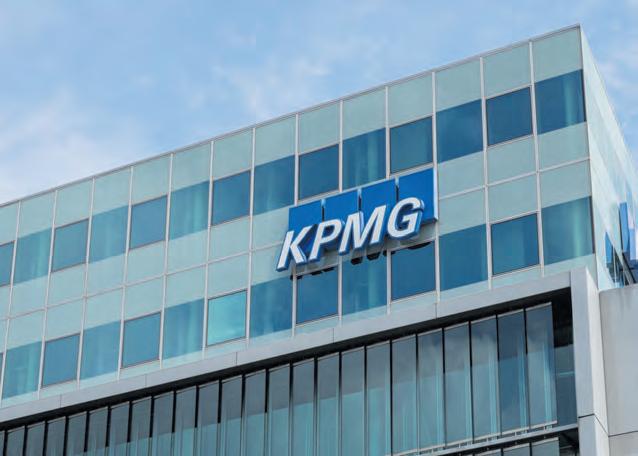
KPMG chief executive Bill Thomas said KPMG’s broad offering gave the firm “the stability and resilience to invest, even in hard times”.
VODAFONE yesterday transferred over half of its shareholding in its Egypt business to Vodacom, its African subsidiary, as it simplifies the core business.
Under the agreement, the telecoms giant has been issued with 242m shares in Vodacom and received cash proceeds of €577m (£478m) in exchange for its 55 per cent shareholding in Vodafone Egypt.
Acting Vodafone chief Margherita Della Valle said the move was about “simplifying Vodafone Group’s structure and supporting Vodacom and Vodafone Egypt for future growth”.
Della Valle recently replaced ousted Nick Read after his four years in the top spot.
Although Read steered the FTSE 100 firm through the pandemic, narrowing the company’s focus on Europe and Africa and cutting costs, the company has grappled with a dwindling share price.
Shares have fallen more than 60 per cent over the past five years and plunged by about a fifth this year alone compared with a two per cent gain in the FTSE 100.

LOW ON BATTERY Demand for electric cars drops amid cost-of-living pressures
AEROSPACE tech supplier Chemring has seen its order intake grow by nearly a third this year on the back of governments upping their defence spending.
The London-listed group recorded £551.5m worth of orders in the 12 months to the end of October, which boosted revenue to £442.8m.
Order intake for Chemring’s countermeasures and energetics division –which includes rocket components, decoys and systems against guided missiles –made up most of the order intake, which was up 40 per cent to £356m.
The defence firm’s tally of future orders is also up a third, with the group expecting £650.9m worth of upcoming orders as of the end of
October. The group’s order book currently accounts for around 86 per cent of its expected revenue for the whole of the next year.
The uptick in demand comes on the back of rising global tensions, which boosted Britain’s defence titans.
Chemring chief executive Michael Ord said the group’s mission to make the world “a safer place” had never “been as important as it is today”.
NICHOLAS EARL
OFWAT yesterday announced it will raise the size of its innovation fund to £300m as it looks to encourage companies to be more efficient and come up with new ideas to improve the sector and offer customers’ benefits.

This includes greater use of markets to provide better value for customers, assessing how major investment projects are procured and the operation of developer services and bio-resources.
The £300m package is a 50 per cent hike on the current fund, and has been included in the watchdog’s upcoming price review (PR24), which will cover spending allocations for companies over the 2025-2030 period.
In exchange, water companies will be required to commit to more stringent environmental targets alongside improving customer service and providing more transparency around dividend and executive pay policies.
Ofwat is looking to establish the framework water companies will follow, leading to final decisions on each company’s future plans, and customers’ bills, in December 2024.
New environmental commitments for companies include the use of storm overflows, reducing greenhouse gas emissions and improving biodiversity and bathing water quality. It will also require companies to address long-term challenges such as ensuring the country has sufficient water resources.
This includes establishing steps to reduce leakage and water consumption and increase water supply, with a new fund of up to £100m to stimulate new approaches to water efficiency.
To improve customer service, it is also calling for every company to conduct robust customer research and hold two public meetings next year.
Ofwat chief executive David Black argued water companies needed to act now to deliver improvements ahead of the next price review taking effect.
He said: “Companies have fallen short of the expectations of customers and communities – they need to seize the opportunity to transform their performance at PR24. Turning around performance on the environment and improving resilience will require innovation, new approaches to managing water and investment.”
UTILITA has agreed to pay out £830,000 after Ofgem determined the supplier was not taking individual circumstances into considerationincluding when dealing with vulnerable customerswhen making decisions on credits for users of pre-payment meters. The regulator said the fine was a warning to other firms.
POUNDLAND owner Pepco yesterday said it will accelerate its store rollout strategy as it looks to entice cashstrapped shoppers, after posting elevated profit.
The discount retailer said it was taking an increased focus on new stores in western Europe and a refit programme in central and eastern Europe. It also announced it would up its annual capex spend to between

€350m (£300.7m) and €400m (£343.6m) over the next couple of years.
As a result of the discounter pressing accelerate on its strategy, the Warsawlisted giant said it expected to deliver €1bn in core earnings in less than five years’ time.
Underlying profit before tax swelled 23.8 per cent year-on-year to €300m as the retailer reaped the rewards of consumers favouring budget option, results for the year to the end of September 2022 revealed.
COUGH UP Utilita to pay £830,000 after Ofgem reveals customer support failures
















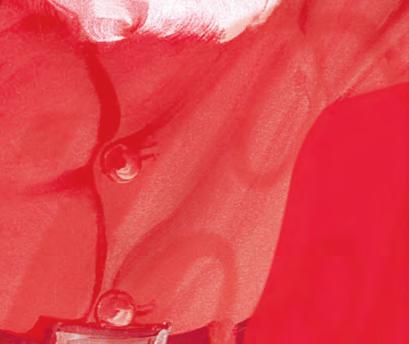



 MILLIE TURNER
MILLIE TURNER
CHINA is reportedly crafting a $143bn (£116.5bn) package to support its semiconductor industry, as it launches a dispute with the World Trade Organisation (WTO) to challenge US export controls on chips.

The package would be a major pillar in sustaining its country’s chips sector, which is resisting attempts from the US to slow its technological advances.
Beijing plans to roll out the package, which seeks to rival the US’ $52bn worth of fiscal incentives, as soon as the first quarter of next year, according to a report by Reuters.
Most of the capital is expected to go towards bringing more semiconductor fabrication plants under Chinese ownership, sources told Reuters.
Semiconductor companies are thought to be entitled to subsidies worth up to 20 per cent of the cost of

















purchasing new equipment or facilities.
The US unveiled significant semiconductor export controls in October, which ban Chinese companies from buying advanced chips and chip-making equipment without a licence over national security concerns.
Chips are used in most of today’s technology, but increasingly have militaristic applications.
However, China has filed a trade dispute with the WTO, calling the US curbs “trade protectionism”.
“China’s filing of a lawsuit at the WTO is to resolve China’s concerns through legal means and is a necessary way to defend its legitimate rights and interests,” China’s commerce ministry said in a statement yesterday.
The ministry urged Washington to “give up zero-sum thinking”, adding that the US’ new rules threaten the stability of the global chip supply chain.
THE PORT said that over 90 per cent of workers agreed to the offer, which also included an additional £1,000 lump sum. “We are pleased to have reached an agreement on the 2023 pay deal,” chief operating officer Robert Ashton said on Tuesday. A Unite spokesperson welcomed the pay deal, saying it had been achieved following this summer’s strike action. Workers walked out twice over the summer.

chief executive Rolf Habben Jansen.
SHIPPING giant Hapag-Lloyd yesterday forecast a small and short-lived uptick in demand towards the year’s end.
The world’s fifth-largest shipping company saw a decline in demand in September and October as the cost-ofliving crisis weakened demand.
“I don’t think the market is as weak as it was four or eight weeks ago,” said
“Towards the end of the year and running up to Chinese New Year, I think we see a little recovery in demand.”

Hapag-Lloyd nevertheless maintained a cautious outlook going forward, as freight rates have started to settle down after being at record highs for a good part of the year.
In the first nine months of 2022, the



group’s ebitda more than doubled to $16.6bn (£13.4bn), whilst profit jumped over 54 per cent to $14.7bn. However, the chief exec cautioned in November that the market environment had “deteriorated further” in the third quarter.
Hapag-Lloyd is not alone in facing slowing demand, with rival Maersk appointing a new chief executive this week to weather upcoming challenges.


CORPORATE restructuring specialists














Begbies Traynor and FRP Advisory are expecting a boom in demand for their services as a result of the ongoing economic slump.
The advisory businesses are expecting to profit from a surge in insolvencies over the coming months, with firms battered by Covid-19 seeing further cost increases making business more or less impossible going forward.

Speaking to City A.M., Begbies Traynor’s executive chairman Ric Traynor said the consultancy was set to capitalise on the highest levels of insolvency activity for “over ten years”.
“We expect continued growth from business recovery and financial advisory, given its increased order book, higher level of enquiries and increasing economic headwinds,” Traynor said.


He argued the recession will also offer Begbies Traynor an opportunity to snap up smaller rivals, as it pushes ahead with efforts to become a “bigger fish” in the small and medium-sized enterprise (SME) insolvency pond.

FRP Advisory put forward similarly op-








timistic statements, with company chief executive Geoff Rowley saying the firm’s “restructuring team is well positioned to service the expected increase in demand stemming from the many challenges faced by UK businesses”.
“Uncertainties persist over how long the available liquidity and governmentbacked loans can sustain troubled businesses and how proactive key creditors like HMRC and institutional lenders will be on addressing overdue debts,” Rowley said.
The forecasts come as Begbies Traynor yesterday posted a 12 per cent uptick in its revenues to £58.5m over the six months ending 31 October 2022.


FRP Advisory also saw its revenues jump 24.5 per cent to £49.4m in the six months ending in October, as the firm completed 50 transactions worth £1.28bn.
Shares in Begbies Traynor fell 5.31 per cent in trading yesterday, while shares in FRP Advisory also fell 4.22 per cent.
Traynor blamed “retail investors” expecting “bumper results” as he warned any uptick will instead be spread out over a longer period. “Be patient and you’ll get your rewards,” Traynor said
Outsourcing firm Capita yesterday said its contracts with the Royal Navy had bumped up revenues in the past 11 months by two per cent while it also slashed its debt levels by offloading areas of the business. The group said it had raised £462m in revenues this year by shedding areas of the business, including offloading its property pillar and Pay360 arms for a combined £239m in total. “This has been delivered mainly by the full year impact of the Royal Navy training contract as well as revenue growth in justice, central government and transport, offsetting previously announced local government contract exits,” the firm said in the statement.
London-based asset manager Fasanara Capital yesterday said it will provide a $200m debt facility to fuel the growth of European fintech firm Novicap.




Novicap, which provides a platform for firms to access working capital, said the debt funding will accelerate its growth across Europe and be channeled into creating new products. It comes after Novicap’s platform exceeded the €1bn milestone in transactions in the third quarter, as businesses turned to fresh sources of cash amid a funding slowdown. Fasanara boss Francesco Filia said Novicap was addressing a “part of the market that is underserved by banks, thereby having a direct impact on the real economy”.

Planning permission to build Europe’s largest laboratory in Canary Wharf was submitted yesterday, as London patiently awaits a boost to its life sciences sector. The Canary Wharf Group and Kadans Science Partner, which builds science facilities, have submitted their planning application for the 23-storey tower, which was first announced in March. The pair are reportedly expected to fork out around £500m for the development of the lab, alongside a cafe and workspaces. The 823,000 sq ft tower will stand in Canary Wharf’s North Quay, a stone’s throw from the new Elizabeth line. CEO of the Canary Wharf Group Shobi Khan said it was a “significant milestone”.


FINNCAP has seen revenues plunge 48 per cent in the first half of the year as a slump in capital markets activity hammers profits for the City’s brokers and investment banks.
In its half-year results yesterday, the London-listed financial services group said it had swung to a £2.59m loss in the first six months, down from a £6.28m profit in the same period last year.
Wild gyrations on the markets and recessionary fears have caused a slump in deals and fees for a string of investment banks and brokerages.
Finncap said it had raised £80m of equity for its clients in the first half of the year, down from £250m last year, while the value of private M&A transactions tumbled from £1bn last year to £430m this year.
Boss John Farrugia said its “broaderbased financial advisory” prevented a sharper downturn.
NATURE CRISIS Aviva calls for ‘Paris-style’ goals to reverse loss of biodiversity by 2030
THEEngland men’s team went out of the 2022 FIFA World Cup in Qatar this weekend following a 2-1 quarter-final loss to France. The defeat added another entry to the growing catalogue of the national side’s penalty misses and has raised questions about the future of manager Gareth Southgate.
Emotions are running high, and Southgate himself says he is “conflicted” about whether to stay on in the job. Taking a longer view, data from YouGov Football Index shows that the public mood around the team has certainly improved since he took over on 27 September 2016, after the team crashed out of the Euros with defeat against Iceland.
Between then and 11 December 2022, Impression scores for the Eng-
 Stephan Shakespeare
Stephan Shakespeare
land men’s side – which measure whether people have a positive or negative impression of a team – have gone from -12.8 to 10.6, an improvement of 23.4 points. Reputation scores, which measure overall prestige, also climbed from -13.5 to 7.0 over Southgate’s six years as coach (+20.5).
In 2016, scores tracking whether you’d be willing to give up time to follow England sat at 1.2; following England’s World Cup exit, they were at 8.2
(+7). The public are more likely to recommend supporting the team to their friends or colleagues, with this measure rising from -8.7 to 5.2 (+13.9), and – perhaps most importantly for the purists – metrics following the team’s Quality saw substantial gains, rising from 4.7 to 19.4 (+14.7).
Whether Southgate continues in the job or not, his tenure saw a dramatic turnaround in the national side’s public perceptions. Index scores, which measure overall brand health for football teams, jumped from -7.4 to 8.0 (+15.4). There is a far better feeling surrounding England than there was before he joined – even if those all-important international trophies remain elusive.
prosecutors yesterday, including allegations of money laundering and violating campaign finance laws, as well as claims from regulators he used his trading firm as a “personal piggy bank”.
The 30-year-old ex-billionaire faces eight criminal charges from US prosecutors, as well as parallel civil fraud claims from both the Securities and Exchange Commission (SEC) and the Commodity Futures Trading Commission (CFTC).
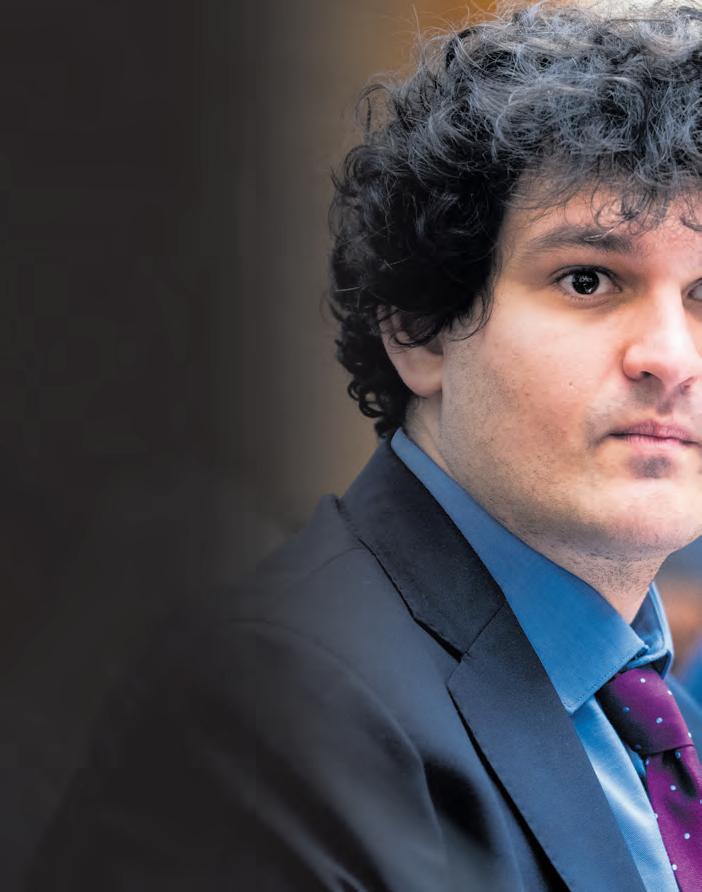
In the indictment revealed yesterday, prosecutors said the disgraced founder had looked to defraud FTX’s customers by using deposits to pay for expenses and fund bets for his crypto hedge fund Alameda.
The SEC separately claimed he had orchestrated a “years-long fraud” to conceal the diversion of FTX customers’ funds to Alameda and commingled customer funds for use on venture investments, “lavish real estate
investors that it was one of the safest buildings in crypto.”



“The alleged fraud committed by Mr. Bankman-Fried is a clarion call to crypto platforms that they need to come into compliance with our laws,” he added.

Bankman-Fried is expected to be extradited to the US to face trial after he was arrested in the Bahamas on Monday.
The charges came as the chief parachuted in to oversee FTX’s bankruptcy, John Ray III, told a US congressional hearing that FTX’s collapse was a result of “grossly inexperienced” people running the firm.

“This is really old-fashioned embezzlement,” Ray said. “This is just taking money from customers, and using it for your own purpose.”
Bankman-Fried’s lawyer said in a statement the founder was “reviewing the charges with his legal team and considering all of his legal options.”

AMAZON has delayed graduate recruitment dates as the e-commerce giant attempts to slim down costs. Students who were due to start in May 2023 have been told they cannot join the US firm until the end of next year, due to the “macroeconomic environment”.


The firm has, however, offered a one-off payment of $13,000 to those impacted, according to an email seen by the Financial Times.
“As a part of our annual operating planning review, we look at each part of our business and make adjustments as needed,” the email said. “You are not the only one being impacted. It is important to know that
this is a business decision, not a personal decision.”
The email was sent to staff set to join Sunnyvale, California, the company’s research facility and where the Alexa voice assistant is developed. It comes after reports that Amazon is set to dump 10,000 jobs amid a torrid slew of tech lay-offs in recent months.



GLOBAL markets received a huge boost yesterday from another positive US inflation print. London’s premier FTSE 100 index closed 0.76 per cent higher at 7,502.89 points, while its mid-cap domestically-focused counterpart, the FTSE 250 index, climbed 1.42 per cent to 19,086.29 points.
The pair had been fairly muted for most of the morning session. But, after new inflation numbers came out across the pond in early afternoon UK time, they surged.
Prices climbed 7.1 per cent over the year to November in the world’s largest economy, down from a rate of 7.7 per cent in October and much lower than Wall Street’s estimates.

The figures fuelled hopes that inflation has passed its peak and is now on a downward slope.

The prospect of inflation falling over
the coming year raised expectations that the US Federal Reserve could end its tightening cycle sooner than expected.
Those hopes sent Wall Street flying. The tech-heavy Nasdaq, S&P 500 and Dow Jones indexes all shot higher during opening trading.
The Fed is anticipated to lift borrowing costs 50 basis points today, but could finish there.

“Looking further ahead a pause may not be far off. While another interest rate increase at the Fed’s next meeting in early February can’t be ruled out, our expectation is that there are unlikely to be any further increases beyond that,” Daniel McCormack, head of research at Macquarie Asset Management, said.
The pan-European Stoxx 600 index bumped more than one per cent higher. The US dollar fell.


CADWALADER
Law firm Cadwalader, Wickersham & Taft has poached its latest partner from Hogan Lovells.
New ESG finance and investment partner Sukhvir Basran had previously cofounded Hogan Lovells’ global sustainable finance and investment group.

Based out of the firm’s London office, Basran will use her experience as a
Petra Diamonds has maintained a sparkly ‘Buy’ rating from analysts over at brokerage Peel Hunt. The diamond miner, which has been given a target price of 160p, posted a small increase in like-for-like pricing yesterday, after pocketing $42m (£33.8m) in revenue. While pricing was in line with expectations, analysts expects prices to jump once the Chinese market reopens.
British chemicals business Synthomer has been marked as a stock to ‘Hold’ by Peel Hunt analysts, following the nearly £200m disposal of its laminates, films and coated fabrics division to Germany’s Surteco. The deal is expected to close in the first quarter of next year. The timing has beaten analysts’ expectations and puts the London-headquartered company on “much firmer footing”.
banking lawyer to advise clients of ESG strategies, disclosure and products.




“She is a true market leader in this space and will strengthen the London office’s service to our clients across funds finance, private credit, securitisation, CLOs, and real estate finance,” managing partner Pat Quinn said.
Fintech firm Hi Group has hired a new general counsel, who will play a key role in the company’s expansion in providing strategic legal advice.
Lee Cullinane, who has held roles in a number of high
profile law firms in London, including Mayer Brown and White & Case, first launched his career at Clifford Chance.
The incoming legal counsel brings experience from across private equity, leverage finance and cross-border transactions.
“Lee has a very impressive track record at some of the most prestigious law firms across London and so we are delighted to have him onboard,” founder and chief executive of the group, David Brown, said.
West End law firm Seddons has built out its office with
the appointment of six new full equity partners, as it seeks to grow its core practice areas next year.
Sangeeta Somchand, Daniel Robin, Emily Lui, Simon Noonoo, Moshe Moses and Christian Smith became full equity partners in the firm just days ago.
Joining several of the firm’s real estate and dispute resolution teams, they are the first full equity partner promotions since 2019.
“They are all brilliant practitioners who embody our values as a firm,” said managing partner Simon Ross.
“We have a wealth of exciting talent within our firm and we will continue to focus on investing in that talent and offering opportunities for our people to develop.”
CAUSE
OPTIMISM “If you listened closely, you could almost hear a sigh of relief when US inflation data came in a little cooler than had been expected. That’s not say prices aren’t still uncomfortably high for the US consumer or that at six per cent the number isn’t three times higher than central bankers would like, but at least they’re going in the right direction.”
DANNI HEWSON, AJ BELL
THE LIST of things wrong with our democracy is by now, pretty familiar. An antiquated (albeit unwritten) constitution, distrust in politicians, political polarisation, populism – all these are legitimate concerns but we rarely hear about an even more fundamental problem: the dire state of political education.
We need to start treating political education like maths or English, like a basic, essential knowledge bank that you can draw on as you go through life. We need to stop assuming that an understanding of our institutions is a natural process that will simply develop through spirited debate and formative life experiences.
Debates and experiences have never told me in black and white how pressure groups work, how MPs are selected, or the foundational ideology underpinning our major political parties. Politics is not a skill or an interest - it is a substantive, information dense subject.
The need for a rounded understanding of institutions and ideologies feels more acute than ever in a world where social media plays such a distinct role in political engagement. The dominant form of media consumption for young people is almost always sledged
as an echo chamber which enhances confirmation bias - an explicitly anti democratic characteristic.
If we are serious about fostering the next generation of policymakers, political education should be considered another fundamental puzzle piece in a modern, tech driven democracy. Aside from the material benefits, there is piles of evidence showing what it does for positive civic engagement. Research from the House of Commons recently demonstrated that young people - 18 to 25 year olds - were the least likely to be disengaged out of all the adult age groups. But there is a gap between this participatory im-
pulse and electoral turnout: less than half - 47 per cent - turned out to vote at the last election.
And currently less than a third - 29 per cent - of schools are offering weekly lessons explicitly dedicated to politics or citizenship education. All the while, the demand from students is clearly there: there has been increased demand to study A Level Government and Politics following a tumultuous few years in national and global politics. In 2018, there was a 10 per cent increase according to the Joint Council for Qualifications.
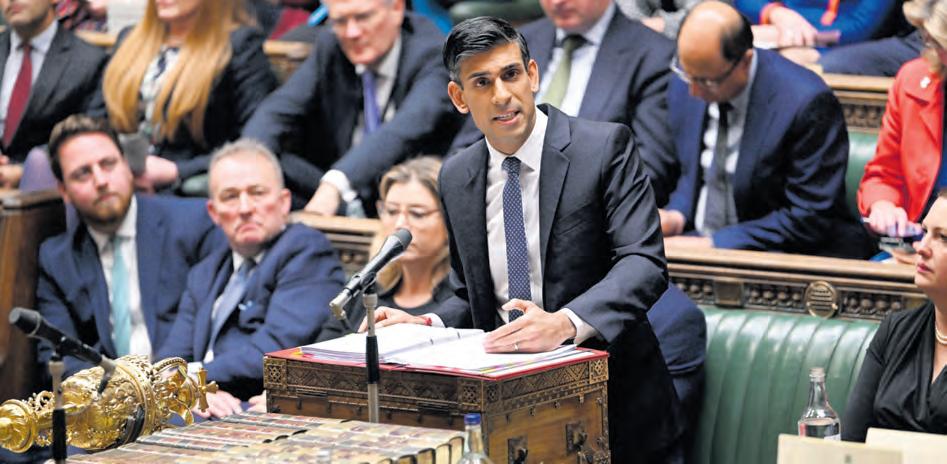
It is particularly remarkable that political literacy is absent from discussions about elitism in politics. To the surprise of absolutely no one, the absence of formal political education has
a disproportionate impact on deprived communities over affluent ones. 75 per cent of parents that earn £70,000 or more would feel confident talking about social and political issues with their children. Only 33 per cent of parents earning under £10,000 feel the same.
Indeed, 79 per cent of the AB social class consider themselves to have a knowledge of politics, while only 32 and 29 per cent in the C2 and DE class respectively, according to the Hansard Society.
A common concern is that parents do want their children to learn politics but are concerned about bias. I have always found this a peculiar concern. Textbook “government and politics” is a remarkably specific course and it is not a debating society. Having stayed up until 2am the night before my final politics exam, I can testify the information needed to succeed in exams was exacting - the definition of bicameralism is still burned into the back of my eyelids. Much to my dismay as an opinionated 17 year old, it did not reward mine, or my teacher’s, personal political opinion.
After school, if people manage to traverse politics, it is through the lens of parents, academia, work or life experiences, newspapers with a specific editorial bias, social media algorithms or (such is the modern world) toxic political campaigns. If parents don’t concede that political education is completely neutral, they should at least concede that it is the most politically neutral option, comparatively.
£ Rosie Beacon is a senior policy analyst at the Tony Blair Institute

IN THE midst of today’s economic backdrop, the critical challenge facing both public and private sectors is supporting growth through the choppy waters ahead - and the key to this is giving business the confidence to innovate right across the UK.
At the heart of the solution is partnerships, whether that’s between businesses, sectors, policymakers or communities. New research published this week by Centre for Cities, supported by HSBC UK, has found the enormous economic opportunity for highly-productive clusters of innovation outside of the “golden triangle” of London and the South East.
No individual, business or government can meet the scale of this challenge. But for all challenges ahead, from the net zero transition to responding to labour shortages, we need an innovative economy to support the adoption of new technologies to keep the UK competitive. We need to secure the fundamentals.
The pandemic highlighted the best of British innovation and business dy-
Ian Stuartnamism, but to sustain this, we need an ambitious vision to harness this sense of creativity. Critical to this is making the UK an easy place to do business in. We need clarity, certainty and predictability to change longer-term investment strategies and decisions.
Government must take a strategic approach, in lockstep with business, to convince firms to invest here, innovate and scale.
HSBC UK supports business to innovate through our international network, which covers 85 per cent of global trade flows, and schemes such as our £15bn SME lending fund, which includes a £500m ring-fenced pot for
small businesses, and our £250m growth lending fund for high growth tech scaleups.
But access to finance is only one piece of the jigsaw. We need proportionate and predictable regulation, trade openness, investment in skills and R&D, and policy predictability. If we are to “levelup” the country, public-private partnerships are going to be increasingly important with inflationary pressures.
The Centre for Cities report calls for a £14.5bn pot for Birmingham, Manchester and Glasgow over 10 years for upgrades to existing infrastructure. Beyond that headline figure, the challenge is ensuring that the government – and other public sector bodies – tap into the unlocked capital to drive up productivity. Crucially, this means having a pipeline of bankable and investable projects.
We in the financial sector can facilitate this by working together to advise government on how it can mobilise private finance – by making projects more “bankable” and “spade ready”: scalingup projects and finding more innovative
ways to share the risk, collaboration between regions to promote skills and blended finance, to name just a few.
There is a long history of public and private sector collaboration working –we now need to catalyse the next iteration of partnerships and investment models.
For investors, we should develop a clear, singular, “brand UK” proposition and one front door into central government for major strategic foreign direct investment projects. There’s no reason why the UK can’t blend a single proposition with vibrant regional, national and city identities, each with their own distinctive industrial or innovative clusters.
So while the challenge is significant, there are many reasons to be optimistic. Together we can support businesses which in turn will help drive growth and prosperity across all parts of the country. If we can get this right, the future can be very exciting.
£ Ian Stuart is chief executive officer of HSBC UK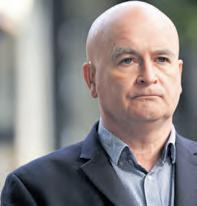

IfFormal political education focuses on how our democracy works
MICK VS THE BBC Mick Lynch, the militant boss of the RMT union, has many enemies: the right wing press, the government, the Labour Party. Yesterday Lynch decided to add another to the list: the BBC. He claimed the broadcaster was ‘parroting’ propaganda after he was asked how much strikes would cost workers
The absence of political education has a significant impact on deprived communities
[Re: Fears of privatising the NHS are stopping us from saving our health service – and lives, Dec 2]
Fears around the collapse of the free NHS are not new. The past few years has seen increasing worry over staff shortages and the ageing population. Services have been overwhelmed. Jumping the NHS ship and opting for private healthcare is a possibility for some, but by no means all, particularly in the current economic crisis.
Wait times are one of the biggest issues being faced in hospitals and GP surgeries; this is avalanching towards
the care sector. They’re the domino effect of too many patients and too few beds.
Worries around a private NHS will cause concerns among those who need continuing healthcare outside of the hospital environment, particularly those who need long term care at home. The NHS currently offers a Continuing Healthcare Package which funds eligible patients for long-term nursing care, should their needs be medical rather than social. As it stands, this is often very difficult to get a hold of, despite the overwhelming reality of the needs of some patients.
Lisa Morgan, Partner,and head of the specialist Nursing Care team at Hugh James Solicitors
AWAGE price spiral. We have not experienced one for so long that for most people the phrase might just as well be written in the Old English of a thousand years ago. It is, well, sort of comprehensible but only just.
But such spirals can take hold with terrifying swiftness.
Towards the end of 1973, inflation was around 8 per cent. The figure felt less disturbing then than it does now, after we have experienced several decades of near-zero inflation. The early 1970s had seen a major commodity price boom, pushing up inflation everywhere. In Germany, a country with a longstanding fear of inflation, prices were rising at an annual rate of 4 per cent.
Eighteen months later, by the middle of 1975, inflation in the UK was well over 20 per cent. It was moderated by rising unemployment in the second half of the decade, and even more by the massive recession of the early 1980s with unemployment reaching over 3 million. But it took a further decade for inflation to be really squeezed out of the system.
The trigger for the dramatic accelera-
For some, the snow has brought a layer of white beauty to our capital. For others, it is a menace. When temperatures fall below zero degrees, something called the Severe Weather Emergency Protocol is activated to support people sleeping rough.

Mayor Sadiq Khan activated it last week, and councils and charities have been scrambling to find extra accommodation for the homeless since then.
Westminster is the local authority with the highest number of rough sleepers in the UK. Pam Orchard, CEO of The Connection at St
Martin’s, says that scores of people have been put in hotels by the Westminster council.
“Emergency provisions are being put in place, and people are joining in to sort the situation out”, she says.
Sleeping rough is only the tip of the iceberg - the cost-of-living crisis could push millions into temporary and unsafe accommodation. If you can help, consider donating to your local charity or refer people sleeping on the streets to Streetlink, where they can be connected to the relevant local authority.
St Magnus House, 3 Lower Thames Street, London, EC3R 6HD Tel: 020 3201 8900
Email: news@cityam.com

Certified Distribution from 30/5/2022 till 01/07/2022 is 79,855
tion in inflation during 1974 was a sharp increase in world energy prices in the winter of 1973/74. The potential parallels to the world of today are obvious.
Inflation rose across the West as a whole. But the similarities between countries soon ended. By the end of 1975, inflation was back down to 4 per cent in Germany and was still some 20 per cent in the UK.
The key difference was that organised labour in Germany – both countries were much more heavily unionised than they are now – appreciated that
the rise in world energy prices meant that their living standards had to fall. Income had been transferred from countries which used energy to those which produced it. They did not attempt to chase inflation with ever larger wage demands.
In complete contrast, workers in the UK demanded hefty pay rises. Once conceded, these translated into even higher prices by pushing up the costs of production. In turn, this led to even larger pay claims across the economy as a whole. The National Union of Railwaymen famously turned down an offer of 27.5 per cent on the grounds that it was inadequate.
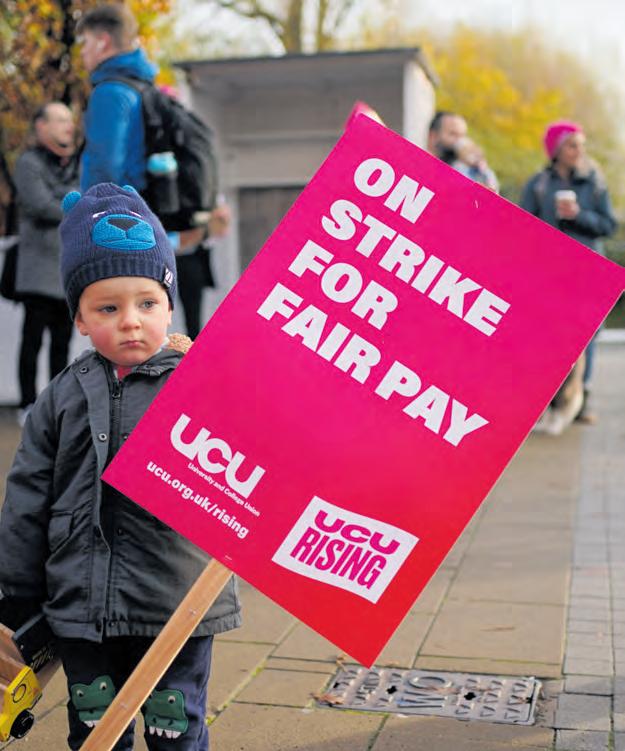
This is what a wage-price spiral looks like. It has a devastating and negative impact on the economy.
We can put this into a much longer historical context. Over the past 150 years, advanced economies such as the US, UK and Germany have only experienced a small number of episodes of high inflation.
Two of these were during the world wars, when the economies were being run at absolutely full tilt and shortages
and bottlenecks were everywhere.
The others, such as the 1970s sagas in both Britain and America, have been when there was fierce conflict over the distribution of income. In Germany in the early 1920s this got completely out of control and inflation was literally millions of per cent a year.
No one is suggesting anything remotely like the hyperinflation of the Weimar Republic will happen. But it is perfectly plausible to envisage inflation remaining in double figures if a wage price spiral develops.
Unionised workers in the public sector and the former nationalised industries such as rail seem completely unwilling to accept that the energy price rise implies a reduction in real wages.
It’s not just the Conservative government holding the line on public sector pay demands, but Keir Starmer and the Labour Party as well. If we concede, private sector workers will follow suit, and the wage-price spiral will become the norm.
£ Paul Ormerod is an economist and author at Volterra LLP
Distribution helpline If you have any comments about the distribution of City A.M. please ring 0203 201 8900, or email distribution@cityam.com
Our terms and conditions for external contributors can be viewed at cityam.com/terms-conditions
Printed by Iliffe Print Cambridge Ltd., Winship Road, Milton, Cambridge, CB24 6PP
Editorial Editor Andy Silvester | News Editor Ben Lucas Comment & Features Editor Sascha O’Sullivanitself
Hefty pay rises in the 1970s translated into even higher prices, pushing up production costs
here is something special about Pinot Noir. Beloved the world over, it has been referred to as “the heart break grape” due to its exacting demands on those growing it.
It was immortalised in the film Sideways by the lead character’s impassioned speech: “Pinot needs constant care and attention, you know? And in fact, it can only grow in these really specific, little, tucked away corners of the world. And only the most patient and nurturing of growers can do it, really. Only somebody who really takes the time to understand Pinot’s potential, can then coax it into its fullest expression”.
The same film rather lambasted Merlot, which led to an unfair dip in real life sales, while Pinot received only praise.
It is fair to say that Pinot Noir is the world’s most popular light-bodied red and a gift for food pairing, even for those who may usually opt for a white.

This is because of the grape’s low tannins. Tannins typically create that drying sensation in the mouth often found in more powerful, structured reds, but in a Pinot the wine is silky and soft with ripe red fruits and delicate nuances of violet and rose petals and clove and vanilla spice.
My palate is not your palate, so what we taste, and experience will be slightly different but for me, Pinot Noir makes me think of roses drying in a cedarwood box.
If I were to select one wine to tide myself and my loved ones over this Christmas it would be a Pinot Noir,


£14.99 WAITROSE
From the premium region of Hemel en Aarde in South Africa this supple, sumptuous red has a silky texture, delicate notes of smoke and roses and an elegant ripeness which far outweighs its bargainous price tag.


London is beautiful at Christmas and one of the most festive corners of our city is Covent Garden.
Opening to the general public for the first time, Piazza is the fifthfloor restaurant in the iconic Royal Opera House, boasting a huge terrace with panoramic views over Covent Garden’s holiday wonderland.
The dining room is modern and stylish, flooded with light from the giant windows and warmed by the burnished gold ceiling. Starting with upscale snacks, the prettymuch-perfect duck arancini with smoky hoisin sauce and cod roe “quavers” were not to be missed.
I ordered a bottle of Domaine Agapé Riesling and this Alsace Grand Cru more than delivered.

The chunky smoked salmon starter came with innovatively deconstructed sides of apples, capers and yet more caviar, and the lamb, their most popular dish, showed its seven hours of slow

cooking in every rich, succulent bite. Served with creamy polenta and salty, crispy kale this was a sophisticated take on winter comfort food that filled me with joy.
The choux buns for dessert, stuffed with white chocolate cream and figs, are heavenly baubles of indulgence.
Even at this bustling time in central London the service and pace was spot on and there was an air of easy calm, though perhaps that changes when the opera crowd emerge for the performances.
Though Piazza is not actually a piazza, I came away giddy – not just from the vertigo of the views but from the highly enjoyable lunch.

the ultimate crowd-pleaser. Fine wine lovers will already be solid fans of the grape thanks to Burgundy, while those who crave a bargain will be bowled over by the quality of Pinot coming out of regions like Romania and Chile.
Unlike some fuller reds, Pinot Noir can be lightly chilled to go with seafood starters and fish dishes. But thanks to its supple red fruits and notes of light spice, it can also handle roast turkey, goose or ham and all the accompaniments of the table from your bread sauce to your sprouts.

It is also my go-to wine for vegetarian and vegan dishes, being one of the few reds that truly sing with this style of cooking, from mushroom risotto to vegetable kebabs. In my last column I recommended white wine over red for the cheeseboard, but a light vibrant Pinot Noir can also pair with a variety of cheeses, particularly the semi-soft styles of Gruyère, Gouda and Comté.
Of course, there will be those of you who would prefer a white with your poultry, and if this is the case I urge you to look at Chardonnay’s seductive cousin, Viognier.

A wine with similar weight and texture, it offers a range of versatility. Look for oaked versions if you prefer your white wines with a luscious depth of flavour and creaminess, which can also compensate for any dryness in your turkey. Younger, unoaked bottles will be fresher, with whispers of summer gardens thanks to the floral notes of the wine.
But if you’re on the fence for the big day, my vote goes to the Pinot Noir.


Forget Christmas pud, these easy-tomake tarts will give your festive meal the finale it deserves, by Jemima Tart
Traditional Christmas pudding is not for everyone. Personally, the thought of currants and raisins steamed into a dense pudding makes my toes curl.
I always plan to make my Christmas cake months in advance –I picture it covered in marzipan and thick icing, resembling a beautiful snowy vista. But occasionally I admit to buying one in, as pretty much everybody does. In all honesty, Christmas pudding is too much, more about the drama of setting it on fire than the enjoyment of eating the thing.
So I would like to instead introduce my good friend salted caramel. Dreamy, deliciously decadent, salty and sweet, my god its good. This recipe is a festive spin on my classic salted caramel tart, in which I have substituted sugar for maple syrup and added chestnuts to the mix. And the best bit –it’s even easier than making normal caramel.
People often cheat when making caramel tarts by using dolce de leche, a South American sweetened condensed milk you can find at most supermarkets. It tastes more like toffee than caramel but it does the trick if you are in a rush. Using maple syrup, however, is far superior in flavour and it’s good for the conscience as it’s free from refined sugar.
If the thought of making pastry fills you
with dread, you can even use our bake-free crunchy base, although this only works for a larger tart. I can’t recommend this recipe enough –it’s our Christmas dessert go for anyone craving something a little different on the big day. This recipe makes either one large tart or 12 tartlets.
£ 200ml maple syrup
£ 100g chestnut purée
£ 50g butter
£ 50g double cream
£ 100g roasted and chopped hazelnuts
£ 1 tsp of sea salt
£ 100g 70% dark chocolate
£ 1 tbsp coconut oil
£ 165g plain flour, plus extra for dusting
£ 25g ground almonds
£ 120g chilled unsalted butter, cubed
£ 55g caster sugar
£ 1 medium egg
METHOD (PASTRY)
£ Stir the flour and ground almonds together in a large bowl, then add the butter and rub in with your fingertips until the
mixture looks like crumbs. Stir in the sugar.
£ Break in the egg and work into the mixture with your fingers, breaking it together to form a soft dough.
£ Tip the dough onto a lightly floured work surface and shape it into a ball. Flatten into a disc with your fingers and wrap in cling film. Chill for at least three hours.
£ Roll out into either one large tart case or 12 tartlet cases, place a piece of grease proof paper on the pastry followed by baking beans and cook at 180c for 20 mins.
£ Bring the maple syrup to the boil in a pan and simmer for 10 minutes. Take off the heat and add the butter and cream and combine. Add the chestnut puree, salt and the hazelnuts then pour into the tart cases.

£ Melt together the chocolate and the coconut then pour into the tart cases to cover the caramel. Leave to set in the fridge for an hour.
Belgian beer brand Chouffe is taking over French bistro Funky Cellar for the ultimate Alpine experience. Nestled within Spitalfields Market, the Chouffe Forest will be adorned with pine trees and vintage ski décor for cosy winter vibes and an après-ski atmosphere. The free-to-attend pop up will be open until 2 January, with food offerings including cheeses and a classic Croque Monsieur (renamed ‘Croque Marcel’).
Fancy a Christmas experience without all the baggage of Winter Wonderland?
Number One Park Lane, located within The InterContinental Park Lane, are hosting a Christmas Chalet pop up in partnership with Moet & Chandon. The festive terrace, overlooking Winter Wonderland and the Wellington Arch, is the perfect place for guests to hide away from the cold and tuck into the warming Alpine-inspired dishes and Moet cocktails. Sign us up.





MUSE
Of course, it is not a surprise to include the latest restaurant from Tom Aikens. Tom has always been a chef I have loved to work with and follow, having spent three years in London as his head chef. I admire his approach on food, flavour and texture. He is always pushing himself to the next limit, creating some really super dishes.
This is a traditional French brasserie for when I want to feel like I’m back in France. Simple, traditional and quality dishes served in beautiful surroundings make it the perfect respite when having to brave the West End.


1869
Our all-day dining bar and restaurant opened a year ago and I still love stopping by when I’m not in the kitchen to enjoy some amazing cocktails by our bar manager Jack Porter. We also have some delicious bar snacks, which you can enjoy in the surrounds of the incredible room, designed by Hugo Toro.
BISTRO AND BAR GALVIN LA CHAPPELLE
Small sharing plates to start followed by a perfectly cooked main, finished by the most delicious apple tarte tatin ever made in the UK. There is no need to introduce the Galvin brothers, a perfect duo working day and night to bring you quality on every plate. The bistro is the perfect place for a more relaxed evening but if you want to impress, next door La Chappelle is the place to go.
FALLOW
A clever team bringing sustainability to the next level. With each flavour more subtle than the next, Fallow's menu changes and evolves with the seasons but its ethos and quality remain the same. Walk in, and you’ll be hit by the buzzing, vibrant energy of the place. There are bursts of flame from the open kitchen, the hum and chatter from the diners, and the smells will keep you wanting more.
BANK on jockey Vincent Ho to bounce back from his heartwrenching defeat aboard Golden Sixty at Sha Tin last Sunday with at least a couple of winners on the nine-race programme at Happy Valley today.
There having been plenty of grandstand jockeys quick to apportion the blame to Ho for being caught napping and too far out of his ground when winner California Spangle skipped clear for glory in the LONGINES Hong Kong Mile over the weekend.

A more measured opinion suggests the sudden injection of pace before the home turn by Beauty Joy surprised everyone, including even Zac Purton
aboard California Spangle, and conspired against Golden Sixty, who was momentarily caught flat-footed, and thus didn’t show his customary turbocharged finish until it was too late.
That’s racing. Racehorses are not machines, and Vincent Ho is still young. He is, however, certainly talented and gifted enough to put that set-back behind him, and get back to what he does best; riding winners.
The local-born pilot, with 24 winners already on the scorecard, is well in front of his normal total leading up to Christmas and, looking at his full-book of rides at the city-track, should certainly improve on that tally by the end of the afternoon’s action.
Ho’s best ride of the day is the Francis Lui-trained GALLANT WAKING, who steps up to the extended mile for the first time in the Sand Martin Handicap (2.15pm).
The combination of Ho and Lui have been a successful partnership to follow since the season started, with 10 wins and 12 places from just 64 runners.
Gallant Waking, a son of dual Australian Group One winner Pride Of Dubai, has been a revelation this season, with two wins and a place from three starts at the Valley – all over six furlongs – and is likely to improve even further when stepping up in distance.

His dam, Cassandara Shadow, a winner of the Group Three Western Aus-
tralia Oaks, has also produced many smart middle-distance performers, cementing the opinion the mile trip will be ideal.
This looks a competitive handicap on paper, with progressive and well-drawn Good Buddy trying his luck at a mile again, following an easy win over seven furlongs at Sha Tin last month, capable of proving the principle threat.
Ho is back in the saddle on JUMBO LEGEND for former mentor and trainer Caspar Fownes in the Tern Handicap (2.50pm) over six furlongs.
There is little doubt that this Australian-bred galloper should have completed a hat-trick when just denied after a troubled journey over the course and
distance last month.
Supporters of Jumbo Legend will always have to hold their breath during races, as this fast-improving handicapper has to be ridden quietly at the back before unleashing his impressive finishing dash.
He is always likely to need some luck during the journey, but if his jockey times his run to perfection, he will be hard to beat off bottom weight.
FORMER three-time UK Champion Jockey Silvestre de Sousa can provide some pre-Christmas cheer for his wife Vikki and children, who have come over to Hong Kong for the festive period, by riding a double at Happy Valley.

It’s easy to understand why the Brazilian-born rider is one of the most sought-after pilots in the territory.
His no-nonsense style and ultra-
strong finishes have endeared him to the many thousands of racing enthusiasts in the city and made him one of their favourite jockeys behind champ Zac Purton.
De Sousa has seven rides at the city track, where he has already excelled this season with eight wins and nine places from just over 50 rides.
The 41-year-old is particularly effective when allowed to dictate
from the front and looks set to dominate proceedings in a couple of races, starting with bottom weight E BROTHER in division two of the Albatross Handicap (12.15pm) over six furlongs.
This fast-starting five-year-old makes his first appearance at the venue but has already produced an impressive trial around the circuit recently in preparation for this contest.
When De Sousa and trainer Manfred Man have teamed up in the past, it’s been a recipe for success, and they are likely to produce another winner on their record.
De Sousa is back on board last-start winner SAVVY CHIC in the Hong Kong Golf Club Centenary Cup Handicap (12.45pm) over six furlongs.
The four-year-old overcame his inexperience on only his second career
start by leading all the way over the course and distance last month and, despite a penalty, is capable of winning again.
E Brother 12.15pm Happy Valley

£ Premier League strugglers
Bournemouth have been bought out by a US-led consortium including actor Michael B Jordan. Owner Maxim Demin has sold his 100 per cent stake in the firm to Black Knight Football Club, managed by American businessman Bill Foley. The bid also has a number of high profile backers, including award-winning actor, director and producer Michael B Jordan, and Nullah Sarker. It is Jordan’s first entrance into sport ownership. The new owner, who attended the Cherries’ win over Leicester in October, has had his deal ratified as he committed to “providing the investment to sustain and build” the club.
£ World Rugby vice-chairman Bernard Laporte and president of Top14 champions Montpellier Mohed Altrad have been found guilty of corruption-related charges in Paris yesterday. Laporte was given a twoyear suspended sentence, a fine and a two-year ban on rugby activity while Altrad was handed a suspended sentence, a fine and a suspended ban on operating in business. Both men have the right to appeal.
£ Azeem Rafiq – who last year opened the lid on a number of racism allegations in cricket – yesterday said that he has been “driven out of the country” by “threats and abuse”. The former Yorkshire player told MPs last year about how the sport was “institutionally” racist and yesterday spoke to the DCMS committee a year on from making his claims. Since the 2021 testimony, there have been a number of changes in cricket including resignations at Yorkshire County Cricket Club.
miserly defence and tireless running to close down opponents and maintain their unbeaten record.
They have conceded just once in their five games in Qatar – an own goal – and analysis after the group stage placed them fourth for average distance run per match.
Mexico 1970: Eliminated at group stage after a draw and two losses.
IT MAY not quite be in the realms of Leicester City’s 5,000-1 Premier League triumph, but Morocco’s progress to the last four of this World Cup still represents a minor miracle.
In reaching the semi-finals, the Atlas Lions have gone further than any previous African or Arab nation on international football’s biggest stage.
Were they to overcome holders France tonight and then prevail in Sunday’s final, they would be defying odds of around 500-1, roughly on par with Emma Raducanu’s US Open win.
Morocco’s run has been built on a
But they are also home to world-class talents including Paris Saint-Germain full-back Achraf Hakimi, Chelsea winger Hakim Ziyech, rising stars like Sevilla pair Yassine Bounou and Youssef EnNesyri, and players who have made their mark on this tournament, such as midfielders Sofyan Amrabat and Azzedine Ounahi.
The North African nation have benefited from better support than at any previous World Cup, thanks to Qatar’s proximity and the rallying of the Muslim community to their cause.
Their embracing of players’ families, who have been invited to Qatar at no cost and welcomed into the team base, is also credited with spurring the team on to unprecedented feats.
Mexico 1986: Reached the last 16 but lost to West Germany.
USA 1994: Lost all three matches and exited at the group stage.
France 1998: Four points were not enough to reach last 16.
Russia 2018: Limped out at the first hurdle with one point.
Qatar 2022: First African or Arab team to reach the semi-finals of a World Cup.
And then there is the investment: eight years ago, ministers pledged €135m to improving the pipeline of talent, including a new $65m national football centre, opened last year.
Morocco has a rich footballing tradition, with the men’s national team former African champions and set to celebrate their centenary in 2028.

They became the first African side to top their group at a World Cup in 1986, although this year is only the second time in six attempts that they have made the knockout rounds. And they continue to aspire to stage the tournament, despite five failed attempts since the 1990s alone. Their bid for 2030 could be a joint effort with neighbouring Tunisia and Algeria.
In Qatar they have had to do things the hard way, first by winning a group that contained two semi-finalists from the last World Cup, Croatia and Belgium. They then produced upsets in the last 16 and quarter-finals, eliminating Spain on penalties after a goalless draw and beating Portugal 1-0.
Now they face their sternest challenge yet in reigning champions France, who took another step towards defending their title by breaking English hearts on Saturday.
A better reference point than Leicester’s 2016 heroes might be another major underdog story of international football: Euro 2004 winners Greece.
Otto Rehhagel’s outfit were also built on a foundation of sturdy defence and narrow wins and, like Morocco, held Spain and beat Portugal on their march to the final.
Those with an eye for an omen may recall they also knocked out the holders, who boasted a star-studded attack orchestrated by arguably the world’s best player. The team? France.
Morocco already have a World Cup first, now they can ‘do a Greece’, writes Frank DalleresZiyech is among Morocco’s stars
HOPES of a newfound interest in the European Champions and Challenge Cups took a hit this weekend as home sides struggled to fill their terraces for what some argue are the best club competitions in world rugby.
Attendances peaked at a bastion of European rugby in Munster’s Thomond Park where 21,884 watched the province lose to Toulouse.
And though 21,250 turned out for their match against Castres in the pool stages of last year’s Covid-19-hit season, the club traditionally see their 25,600 capacity stadium sold out weeks in advance for European matches.
Elsewhere, however, no English side managed to reach the 10,000 mark in round one of the Champions Cup.
Gloucester were the best attended side at 9,117, while only Bath surpassed the 10,000 figure in the Challenge Cup,
with 11,251.
One of the bigger selling points of this year’s European competitions is the inclusion of five South African teams. Four of them – the Bulls, Stormers, Sharks and Lions – compete in the United Rugby Championship, while the fifth – the Cheetahs – have been invited into the Challenge Cup.
The Lions hosted Wales’s Dragons on Saturday in front of a pitiful crowd of just over 1,500. To put that into perspective, multiple fourth division French sides exceeded that number at the weekend.
Europe used to be the holy grail of club rugby, but it doesn’t feel like that at the moment.
Changed formats have led to more complicated qualification processes and fewer back-to-back games against some of the continent’s biggest sides. The obsession with forcing “big” ties takes away from the old fashioned match-ups fans crave, while of course the cost of living crisis and aftermath of Covid-19 don’t lend themselves to the cost of a ticket to watch teams play when every match is on television.
This year’s European competition kicked off in Brentford, where London Irish were in the top flight for the first time in more than a decade. It was their return to the big time, a reward for hard work over 10 years and their visitors were French champions Mont-
pellier. It doesn’t get much bigger.
So imagine the disappointment seeing just 5,514 fans making it through the turnstiles. To put that into perspective, the 2010-11 competition saw Irish draw crowds of 20,118 – unsurprisingly, against Munster – as well as 12,240 against Toulon and 12,115 against the Ospreys.
The Welsh side – who in turn drew a crowd of 12,437 against Irish in 201011 – managed just 6,618 against Leicester Tigers this year.
These figures should be a wake-up call for club rugby and the European game, but how this trend can be changed is one for the bigwigs. There’s no quick fix.
Munster 21,884 (25,600)
La Rochelle 16,000 (16,000)
Racing 92 14,135 (25,178)
Clermont 13,795 (19,357)

SA Sharks 12,700 (46,000)
Gloucester 9,117 (16,026)
Saracens 8,356 (10,494)
Bulls 7,183 (51,000)
Sale Sharks 6,659 (12,000)
Ospreys 6,618 (21,088)
Castres 6,153 (12,258)
London Irish 5,514 (17,800) Club attendance (capacity)
HONG KONG businessman and billionaire Calvin Lo wants to deepen his roots in Formula 1. The Michael Schumacher fanboy is the latest wealthy individual looking at the motor racing circus that is F1 as a major sporting investment.

“If whoever comes in plays their cards right, there are lots of opportunities,” Lo told City A.M.
“Once you want to come in, the hurdle to entry is high. There’s no ifs and buts.”
F1’s grid is currently made up of 10 teams, and that’s tended to be the goldilocks number for the last number of seasons.
One of the big reasons for this? An 11th team must pay $200m into a fund that goes to compensate the other teams for the dilution of revenue when TV money is split between 11 and not 10 teams.
The sport has seen the public campaign by American team Andretti to get a team into the series while Porsche were, until recently, in discussions with Red Bull to enter the sport. Honda are also reportedly looking into a return as a manufacturer in 2026.
“We’re talking big numbers [to get involved],” added insurance tycoon Lo, whose wealth is estimated by Forbes to be $1.7bn. “I see the financials as a huge opportunity and that’s where my role will be.
“There are some current teams, the usual suspects [Williams, who this week replaced their chief executive this week, is thought to be one of those, although Lo wouldn’t confirm], that are faced some financial difficulties in the last season or two and their representatives or intermediaries have approached me.
“There are two [teams] I think need some sort of financial injection and a concerted action needed to continue racing.
“I just glance over the numbers, it [their predicament] is pretty serious.
“My team is crunching the numbers as we speak because if we are going to go down the path of putting a car on the grid in 2026, it has to be done yesterday.”
Lo runs a Hong Kong-based broking company named RE Lee International and has several residences on multiple continents.
The 46-year-old businessman cites his reasoning for loving Formula 1 over the likes of football and cricket being
purely down to legend Schumacher.

And he already has business links with the sport.
In August 2021 Williams was sold to
US investment management company Dorilton Capital – of which Lo is a client, although he has declined to confirm whether he owns a stake in the team.

“It is important to convince the rest [of the F1 community] that the pie could be bigger,” Lo said when asked about what the opportunity to be in Formula 1 offers.
“There’s someone coming in [Lo] to look into the numbers, which is not the usual way of F1 doing things, which may widen that pie for everyone.
“I would hope [to make the pie bigger]. F1 is more accessible now through the internet and social

“I see a glimpse of the backstory behind a two-hour race. It’s interBut whether Lo enters Formula 1 through one of the smaller teams with a takeover or comes in like Andretti intends to with a new team, what about the pull of investing in one of the big three
racing teams?
While unlikely, Ferrari, Mercedes and Red Bull are the current dominant trio – and the golden assets of the sport.
“Any team on the grid is incredible and I don’t care whether you’re No1 or the last,” Lo added.
“I think it’s fair to say that the last 1020 years the top teams like Mercedes and Red Bull, these are what people are aiming to achieve.
“Especially a team like Red Bull who are not a car manufacturer, just a bunch of people assembling a car. What they’ve achieved is pretty incredible.
“[A big team would be] hard to turn down but [they’re] also very hard to come by.”
